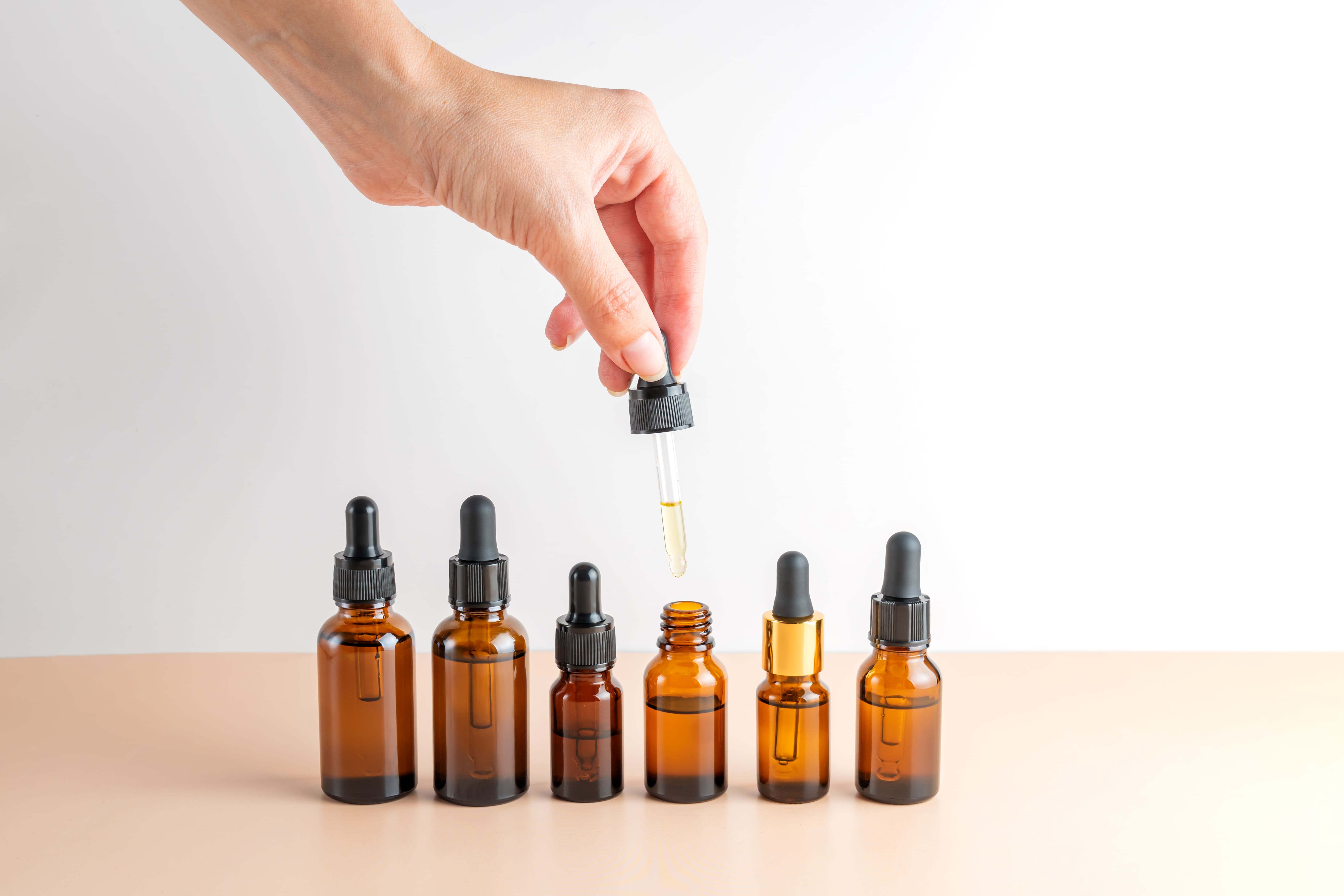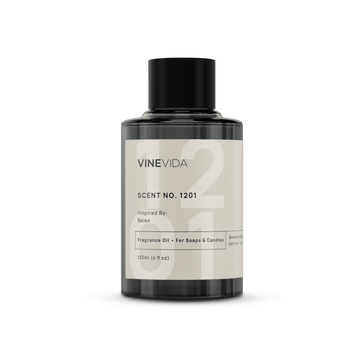Human papillomavirus, or HPV, is one of the most common sexually transmitted infections in the US. Many people don't realize that essential oils can be used to help manage symptoms and reduce the risk of complications associated with HPV.
Essential oils such as thyme and myrtle have shown promising results under laboratory conditions. However, balanced against that, many of the experiments cited in internet posts still need to be human trials.
In this blog post, we'll discuss how essential oils may be used to treat and prevent HPV in the future and their potential risks and benefits.
HPV Awareness Week
Human papillomavirus (HPV) infects cells in the skin and other areas of the body. Each year, there are estimated to be over 14 million new HPV infections in people ages 15 - 24. During HPV Awareness Week, organizations and advocates around the globe aim to raise awareness about HPV and the importance of protection from it.
Before you consider using essential oils for HPV, it's important to understand what the virus is, what causes it, and how it affects your body.
What is HPV?

HPV is a group of more than 150 related viruses transmitted through direct contact. The most common types of HPV are harmless and do not cause any symptoms or health problems. However, some virus types can cause genital warts or even cancer. At least 90% of cervical cancer cases are thought to be due to HPV infection. It's important to get tested if you think you might have been exposed to the virus so that you can take steps to protect yourself from further infection.
This group of viruses is mainly spread through direct skin-to-skin contact and is linked to various conditions, from mild to more serious illnesses. It has caught the attention of researchers because some types put people at risk for developing cervical cancer and other cancers like anal and throat cancer. HPV works by entering into cells in the top layer of the skin and multiplying to spread further. This can cause mutations leading to abnormal growth patterns - from warts to more involved tumor formations. In most cases, however, our bodies immune systems do an admirable job of fighting HPV before it causes serious damage. Vaccination is one effective method for protecting individuals against certain strains of HPV, especially against those which can lead to cancerous conditions.
Also Read: Unveil the Truth about Essential Oils for Menopause
Does HPV Ever Go Away?
Human papillomavirus (HPV) is relatively common and can stay in the body for days, months, or even years if left untreated. In most cases, a person's immune system typically clears it up within two years. However, studies have determined that HPV can remain in some people for their entire lifetimes. There are over 100 different strains of HPV, with two particular types playing a major role. HPV-1 primarily causes genital warts and is associated with certain cancers, whereas HPV-2 mostly affects the skin. It does not cause cancer but can potentially lead to other medical conditions.
What about Cold Sores? Aren't They HPV?
The virus that causes cold sores (Herpes Simplex Virus) differs from the HPV (Human Papillomavirus); however, recent research has uncovered an intriguing association between the two. While it's been known that a virus triggers the appearance of cold sores, HPV is not typically associated with such. A surprising link suggests that viruses, even those unrelated to one another, might interact in ways with dynamic implications for our health. This research supports the need for ongoing scientific inquiry into how viruses interact and how this could inform prevention, treatment, or the ability to anticipate health risks associated with different diseases. With further exploration, researchers uncover the knowledge that can be used to improve lives.
Also Read: Learning to Live with Endometriosis and How Essential Oils Can Help
Why Are Researchers Interested in Essential Oils for HPV?
An area of huge interest in possible future treatments for HPV is essential oils. This is because these viruses are very clever. To outsmart pharmaceutical antibiotics, they mutate and evolve quickly. Pharmaceutical drugs need to be made in a way that consistently treats people, so they are often made from synthetic copies of natural constituents. These "plastic" forms (my word, not theirs) mean they clone and replicate consistently.
That would be great, except viruses change and adapt. So consequently, they always seem to be ahead of the antibiotic game. Natural ingredients, which also evolve and change, are a potential mechanism to adapt these medicines.
Recent developments suggest that essential oils may be the solution to drug resistance in HPV treatments. A 2018 study found that essential oils possess antiviral properties in vitro and could potentially be developed as treatments for widely spread viruses like HPV. Not only would this provide a new avenue of treatment, but it could also reduce the problem of drug resistance, which has crippled current attempts to tackle many virological diseases. Essential oil development is promising, particularly due to its low toxicity, making it a feasible and safer option than some current chemical drugs. While more research is needed to develop these treatments further - the trial was merely cell vs. cell in a petri dish - exciting possibilities may appear for treating antibiotic-resistant HPV infections.
Also Read: How can I Reverse Osteoporosis Naturally?
Using Essential Oils for HPV
Essential oils are natural plant extracts that contain healing compounds such as terpenes and flavonoids. These compounds have strong antiviral properties (Reichling, 2022), making them effective at fighting viruses like HPV. (Maohca, 2022) Certain essential oil constituents have also been found to reduce inflammation and pain caused by genital warts – a common symptom of active infection with the virus.
A 2022 Study showed that Thyme essential oil (Thymus vulgaris) exhibits anticancer properties as well as antifungal and antibacterial properties. This is because it increases free radicals, causing oxidative stress to cancer cells. Thyme essential oil was added to mitoxantrone, an antibiotic cancer drug, with C8, a derivative taken from oranges and made into a vaginal gel. (Moacha,2022)
The mix inhibited the growth of certain cervical cancer cells. (Moacha,2022)
Which is both exciting and marvelous.
However, we interrogate the data carefully to ask, whose vagina….?
Vaginal epithelial tissue was excised from freshly porcine tissue in the nearest slaughterhouse.
Not only was it a pig, but a dead pig. This is not a human trial, so as yet, this is not a recommendation to use thyme essential oil for HPV.
Or don't gamble on using thyme on its own. Certainly use thyme essential oil for HPV treatment, but also see what the doctor recommends…
Also Read: How Do I Use Essential Oils for PTSD
Essential Oils and HPV-2
Myrtle https://pubmed.ncbi.nlm.nih.gov/29943384/
In an experiment by the University of Persian medicine in Iran, sixty women aged 18 to 50 with cervicovaginal HPV infection were included and randomly allocated to two groups.
Sixty placebo or herbal vaginal suppositories were prescribed for 3 months (20 suppositories at each menstrual cycle). Each herbal vaginal suppository contained 10% of aqueous myrtle extract and 0.5% of myrtle essential oil.
Adverse Effects
While essential oils may be effective in treating some symptoms associated with certain HPV infections, it is important to be aware of potential adverse effects when using them for medicinal purposes. A 2004 study published in Phytotherapy Research looked at various essential oils and their potential to cause skin irritation when applied topically over long periods. The results showed that some essential oils had the potential to cause skin irritation if used too frequently or for extended periods without proper dilution or skin protection measures being taken first.
Also Read: Essential Oils For Fertility
Making Vaginal Suppositories from Essential Oils for HPV
Suppositories are a useful way to comfort the itching and discomfort from HPV.
Use a base that will be solid at room temperature. Cocoa and shea butter work well, as does coconut oil.
Suppository Recipe
- 4oz Solid Coconut Oil
- 4 drops German Chamomile Essential Oil (Matricaria Chamomilla)
- 4 drops Thyme Essential Oil (Thymus Vulgaris)
- 4 drops Myrtle Essential Oil (Myrtus Communis)
Method of preparation:
- Take some greaseproof paper and cut strips about 6 inches wide.
- Fetch your wooden spoon, and wrap the paper around the handle to make a tube. Fix it in place with sticky tape.
- Bend the end of the paper over twice to close the end. Fix it with tape.
- Stand several up in a glass
- Melt your coconut oil slowly in a double boiler.
- Remove from the heat. Add essential oils and agitate, so they mix well.
- Remove the spoon, and pour your mixture into the tube. Place into the refrigerator to harden.
- It's worth keeping these colds to keep their shape, but they are also very cooling and soothing.
Method of use: Slice off an off piece about the same size as a tampon and insert it into the vagina. The oil melts down with internal warmth. Use it three times a day.
Safety: Not suitable for use during pregnancy.
Also Read: Essential Oils for Menstrual Mood Swings
Conclusion
When it comes to essential oils and treating human papillomavirus (HPV), research has shown promising results so far. Still, much more research is needed before any definitive conclusions can be made regarding their effectiveness as an effective treatment option for those living with this infection.
It is important to note that while some essential oils may help reduce symptoms associated with certain types of HPV infections, there are potential risks involved when utilizing them medicinally — including skin irritation — so always make sure you use caution when trying out new treatments like these on yourself or someone else!
Ultimately, it's best to consult your doctor before trying any new treatments for your condition—including using essential oils—to ensure you take all necessary precautions for your safety and well-being!
Also Read: A Beginner's Guide to Essential Oils For Menstrual Cramps














